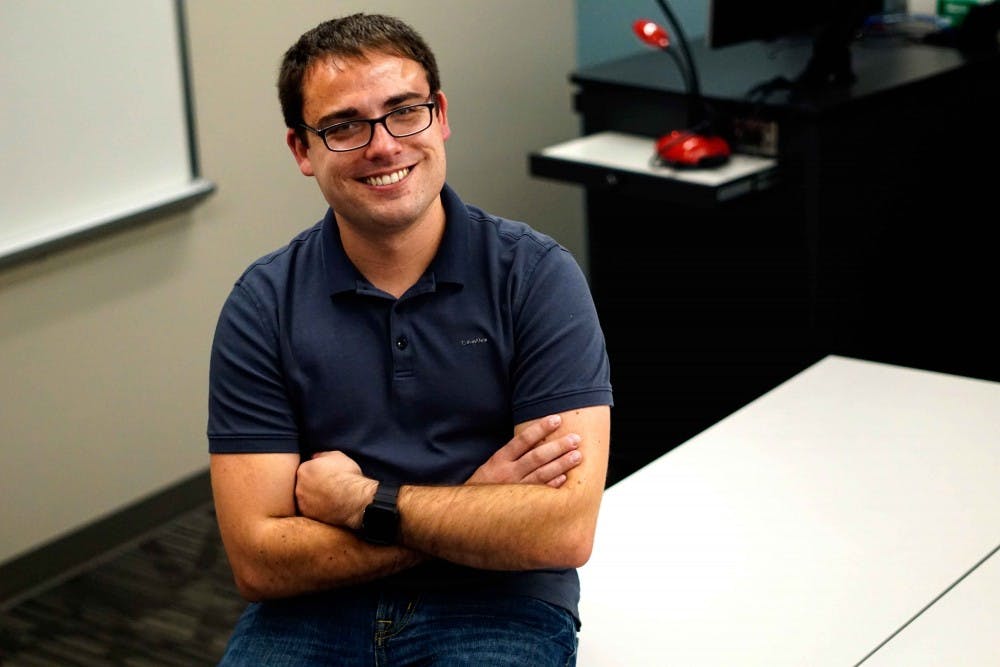Outreach events can blast through the intimidating misconceptions surrounding the complexity of scientific research -- if they're effective.
Graduate student Justin Pratt researches chemistry outreach events conducted by undergraduate student-led chemistry organizations. From his post in the Department of Chemistry and Biochemistry, Pratt specifically investigates whether the organization's stated goals for these events are being met.
Outreach efforts involve a variety of activities, including public lectures and demonstrations, from explosions to tours around campus laboratories. By studying undergraduate chemistry organizations from colleges across the country, Pratt hopes to uncover whether the event organizers understand the chemistry behind these activities and if the students are presenting the content accurately and effectively. His research is conducted with his mentor, Ellen Yezierski, professor of chemistry at Miami.
"We are studying why [college students] do chemistry outreach," said Pratt. "They go to schools or museums and do demonstration or hands-on activities. We want to understand why and what impact is being made."
The "why" aspect of outreach seems to be varied among these groups. Some of the organizations want their audiences to better understand chemistry. Others focus on increasing public exposure of chemistry to demonstrate that it is not intimidating but instead fun and enjoyable. Organizations also highlight how outreach can be inspirational for the next generation of scientists by showing people that anyone can become a scientist regardless of gender or racial identity.
While these outreach events do a great job of piquing interest in chemistry and science as a whole, Pratt's research has shown that specific goals for these events may not be sufficiently met. Some demonstrators have a poor grasp of the scientific principles on which their demonstration is founded. Many presentations also show a lack of understanding of good teaching techniques and the processes by which people actually learn.
"If learning is your goal, but you are not structuring your event to foster learning, that is the problem," Pratt said.
Most literature on science outreach events only describes experimental procedures, but not concepts of chemical education. However, The National Academies of Sciences, Engineering, and Medicine recently provided a framework on how to execute an effective outreach event: set a goal, know your audience and evaluate the attainment of your goal. Pratt also supports this approach.
Pratt's goal is to have his research spark more conversations about poor outreach by making demonstrators aware of potential disconnects between their goals and their outcomes. Once aware of this problem, outreach practitioners can better educate themselves on effective teaching methods, possibly leading to more impactful outreach events in the future.
Pratt points to education researchers who study how to best teach and facilitate learning as sources for guidance for anyone considering doing outreach or being in a teaching role.
Pratt's findings highlight the important role discipline-based education researchers play in science: they study how to best help students learn. This theme is what initially attracted Pratt to the Chemistry Education Research program at Miami University. Pratt's matriculation through the program has made him more confident in his researching abilities, teaching abilities and role as a chemist. His goal after earning his doctorate is to become a faculty member, teaching college courses as well as doing research on chemistry education.
"I want to be able to help students, whether that is in the informal environment with outreach or in the classroom teaching," Pratt said. "I love chemistry because it is challenging. Teaching myself how to do something or helping a student get that 'light bulb' [moment] is what I like."
allegrml@miamioh.edu

